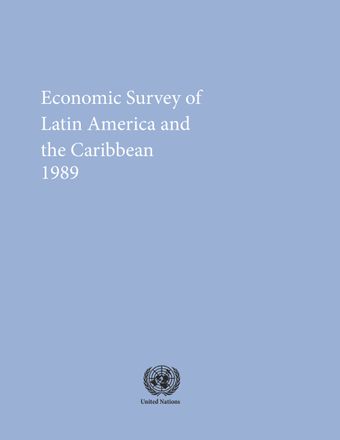Brazil

- Author: Economic Commission for Latin America and the Caribbean
- Main Title: Economic Survey of Latin America and the Caribbean 1989 , pp 227-256
- Publication Date: December 1989
- DOI: https://doi.org/10.18356/82ce4d2f-en
- Language: English
The performance of the Brazilian economy in 1989 reflected the difficulties encountered in restoring the basic macroeconomic equilibriums. By the end of the year, a situation of virtual hyperinflation had developed, with a 1800% increase in prices, despite the adoption of stabilization policies in the first quarter. Moreover, the various attempts at controlling public expenditure failed to reduce the operating deficit, which on the contrary soared dramatically. In the external sector, a sizeable surplus of nearly US$13.4 billion was recorded on the trade balance. This amount was,however, less than the 1988 figure mainly on account of the lag in the exchange rate during the year with respect to domestic inflation. As a result of the smaller surplus, arrears of US$4.6 billion in the country’s external commitments as regards interest and profits were accumulated. These difficulties were compounded by the growing uncertainty arising from the imminence of Presidential elections and the unavoidable need to adopt drastic policies to redress the imbalances, which were becoming unmanageable.
-
From This Site
/content/books/9789210583299s003-c003dcterms_title,dcterms_subject,pub_keyword-contentType:Journal -contentType:Contributor -contentType:Concept -contentType:Institution105



